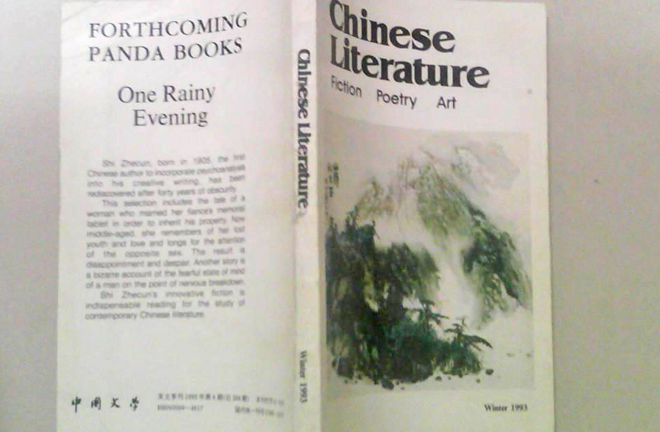HUA MENG: Time for world to experience China’s rich literary legacy

The Journal of Chinese Literature and Culture publishes research on premodern Chinese literature and all aspects of the broader literary culture. It is committed to an international editorial vision and to in-depth exchange and collaboration among scholars in China, the US, and around the world.
Chinese literature has always been a part of the world’s literary heritage. Since the founding of the People’s Republic of China, Chinese literature has continued to tell the nation’s stories and convey its charms through translation, and this is also an important way to enhance China’s discourse power around the globe.
As China becomes stronger and its international influence grows, foreign readers are developing a greater interest in China, especially its language, culture and literature. We are living in a Golden Age for the translation of Chinese literature.
To seize this historical opportunity, one thing should be noted. We should try to capture the complicated experience of the whole nation as well as the particular life experiences of individuals, because this is one major criterion to appraise the quality of literature. For example, many people were introduced to Russia only after reading Tolstoy’s War and Peace. They were deeply moved by the emotions transmitted in the story as well as the country’s unique history that provided a backdrop for the story to take place. From this point of view, China has exceptional advantage thanks to its 5,000 years’ civilization, which is of great value to the world.
The translation of Chinese literature began on a large scale in the 1950s, and during that time, its sole purpose at the time was to introduce Chinese reality to the Western world, while readers were passive receivers. In the 1980s, translators shifted their attention to the readers, and since the 1990s, the focus of translation was on quality, quantity and sales.
A number of milestones have been reached throughout these years, but there are still problems. Translated works need to be tailored to the target audience because some excellent works are not accessible to foreign readers, so they are not entirely understood. To change the situation, translators must study and analyze cultural differences and adapt themselves to local cultures.
To introduce Chinese literature to the world, we need to review and analyze the history as well as current situation of overseas transmission of Chinese literature, and then build a system for the task for the new historical context. In addition, we should draw on lessons from other countries.
Two stages can be identified in the translation of Chinese literature. The first is the selection and production of translated texts at home. The second is the production and acceptance of these texts in abroad.
The first period requires joint efforts from the government, universities and the industry within the country. It is impossible for the entirety of China’s vast literary wealth to be translated. The three sides should collaborate to build a database for Chinese literary texts that are worthy of translation. The government should lead the direction for this task and then become a coordinator between the other two sides, so that the latter two can be effectively motivated.
The second phase is to introduce the selected texts to the targeted audience, including book critics, overseas translators, readers and publishers. They should all have access to the database, and then translators can choose those books based on their own personal aesthetic preferences. Chosen literature should cater to highly educated readers involved in teaching and research as well as the general public. Also, they should be considerate of the commercial value a work could have to publishers.
Moreover, there should be two-way communication. In the process of going out, we should also invite people from abroad to the country, so that they have opportunities for direct contact with excellent works of literature as well as the context in which they were produced.
Hua Meng is from the School of Foreign Languages at Tongji University in Shanghai.
